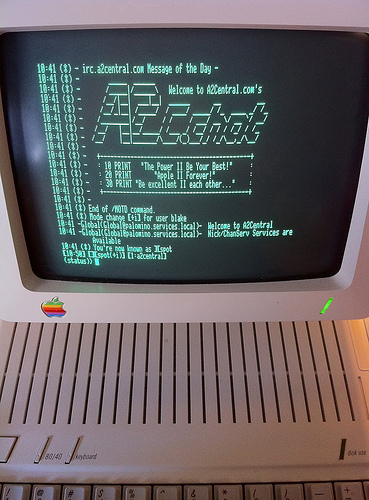What’s it all for? What good is learning a language, really? Why should anyone bother, and what should we do once a language is learned and mastered? I found my answers on TED.com – and tonight I’m sharing them here. Feel free to add yours.
Language learning as its own reward?
Here’s a thing that few people actually think of when learning – or teaching – foreign languages: it’s awfully simple to let it become its own reward. And studying languages is good at this: certificates, levels, groups and tribes – very quickly, this becomes a rich and rewarding environment. So for people like me, it’s not a problem to get excited about a different aspect of language learning every day!
It’s one thing to be a language learning freak – or just to enjoy languages in general – and another thing to assume that this is the case for everyone. It’s not. Many people are just unfazed by this whole “progress-and-certificates-and-community” thing, and for them, a whole new set of rewards would be needed.
Why we all should learn computer code
[youtube id=”Ok6LbV6bqaE” width=”600″ height=”350″]
Mitch Resnick will tell you how awesome coding classes can get. He will show you all the good stuff that happens in kids’ heads when they learn coding. He will make you understand that by learning to code, you’re quickly switching to “coding to learn” – and that computer programs can become projects, stepping stones, social and business opportunities.
The most awesome conclusion for me was this: coding can change people’s lives, and the new skill can enable fluency in other walks of life. By becoming fluent at coding, people become good at problem-solving, design, project management, teamwork. This is not inherent to any programming language – but tends to happen as you “code to learn,” and enrich the whole experience.
Learn to speak – then speak to learn
This is how it could work for a disaffected foreign language learner.
Let’s say you don’t really like coming to class, don’t want to hang out with your teacher, aren’t too convinced that the language learning community is a cool set of people. But let’s assume you’ve been to enough classes and done enough work to actually become fluent at your language.
Great. Now go and do stuff with it.
Speak to the people you need to meet. Write and read and work and translate. If it’s for business, do all the business. If it’s to study another discipline, learn as much as you can. If you learned it to move abroad, go and savour the genius loci. This is the way it could make sense, and teach you so much more – about the language itself, about the problems you’re solving by using it, about your own personality. This is your game, your reward: you became fluent at something that now is your tool to fluency at whatever you desire. And even if that is not the thing you had in mind in the first place – even if the Hungarian girlfriend disappeared, the Spanish flamenco lost its pizzazz and the Chinese contract didn’t really materialize – you will still find that there is a lot you can do with your language.
Not doing it means giving up. You were given a set of power tools. Go tinker.
(photo credit: ![]() Blake Patterson via Compfight)
Blake Patterson via Compfight)
Wiktor (Vic) Kostrzewski (MA, DELTA) is an author, translator, editor and project manage based in London. When he works, he thinks about languages, education, books, EdTech and teachers. When he doesn’t work, he probably trains for his next triathlon or drinks his next coffee.
BRAVE Learning (formerly known as 16 Kinds) is a lifelong learning and productivity blog. If you enjoy these posts, please check out one of my books and courses.
My recent publications, and my archive, is now all available on my new project: PUNK LEARNING. Hope to see you there!


